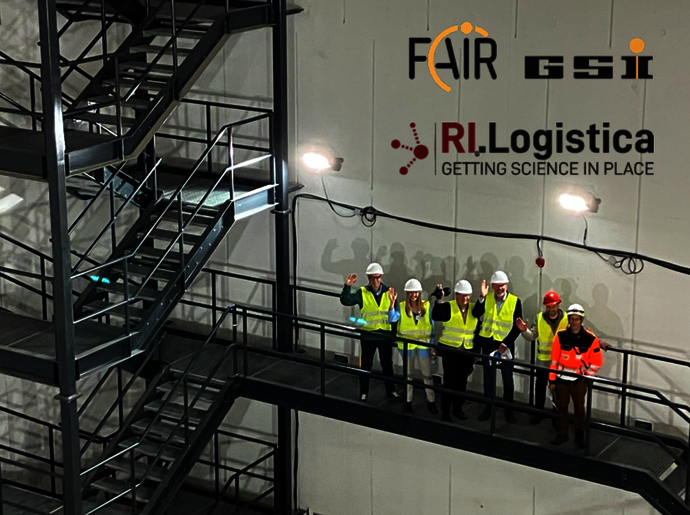
GSI and FAIR are a new member of the non-profit organization RI.Logistica which aims to “get science in place” by providing tools, infrastructure and standards for logistics. In operating and upgrading the existing GSI accelerators and experiments as well as building, installing and commissioning our future FAIR research facilities, GSI/FAIR are facing colossal logistical challenges. Some of those are unique, some are common to several research infrastructures, which allows for synergies.

Researchers of the GSI Helmholtzzentrum für Schwerionenforschung and the Technical University in Darmstadt, together with an international team, succeeded in producing and detecting the long-sought atomic nucleus oxygen-28 for the first time. The experiment was conducted at the Japanese research center RIKEN. A decisive factor was the first-time use of the meter-high neutron detector NeuLAND, which weighs several tons and was developed for the future accelerator center FAIR ...
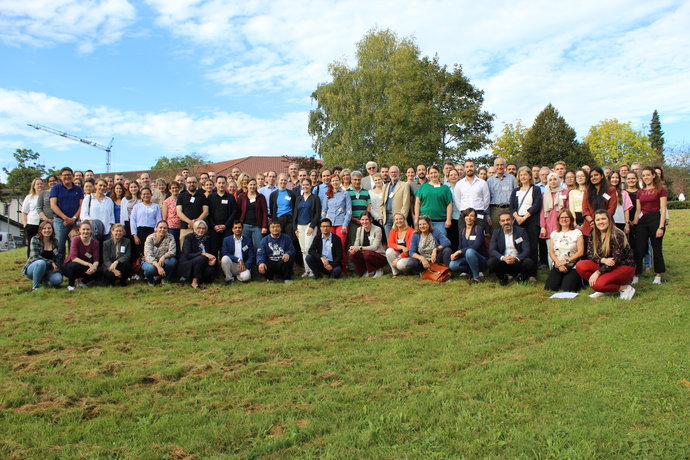
To promote research on biological effects of ionizing and non-ionizing radiation is the main goal of the German Society for Biological Radiation Research (DeGBS). More than 110 scientists from all over Germany came together at the DeGBS annual meeting to present and discuss new research results for three days. The event was organized by the GSI Helmholtzzentrum für Schwerionenforschung, Department of Biophysics. It was chaired by Professor Claudia Fournier (Head of GSI Research Group…
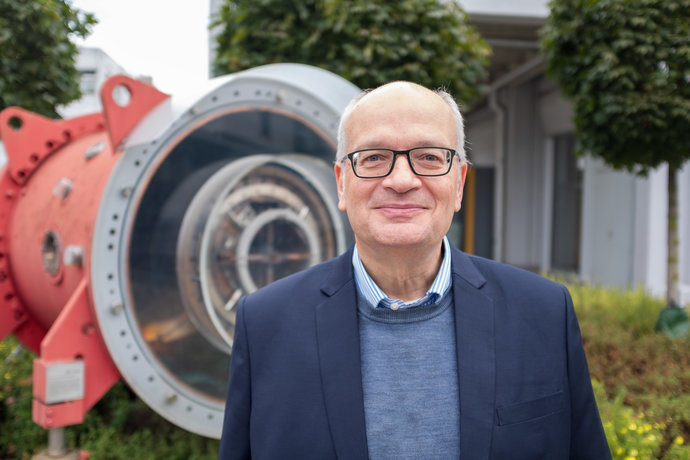
GSI/FAIR's business area “Accelerator Operations & Development (ACC)” has a new head: Dr. Ralph Aßmann took over the position on September 1, 2023, and will in future manage GSI's existing accelerator facilities and plan the integration and commissioning of FAIR.
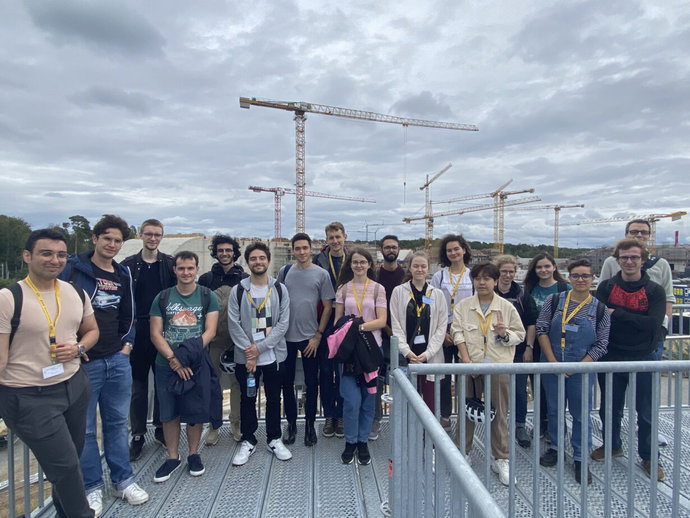
33 students from 20 countries participated in this year’s Summer Student Program at GSI and FAIR. They spent eight weeks on campus, learning about experiments and research fields of GSI and FAIR and experiencing the atmosphere at an international accelerator laboratory.
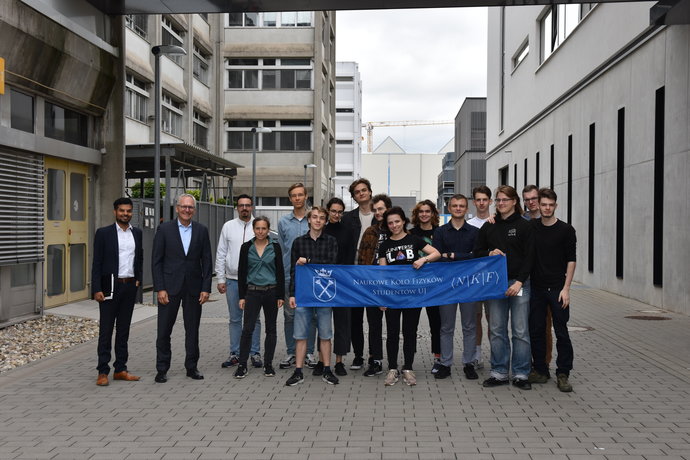
Students from a scientific club at the Jagiellonian University, Faculty of Physics, Astronomy and Applied Computer Science, recently visited GSI and FAIR to learn about the various opportunities in science and technology and gain insight into cutting-edge research at GSI/FAIR.
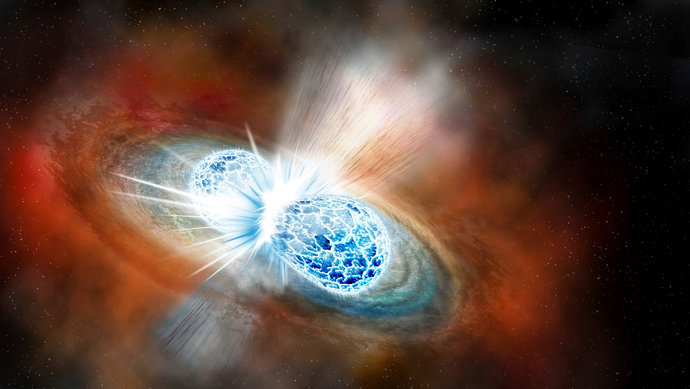
A scientifically outstanding article by GSI scientists has now been prominently highlighted by the renowned journal European Physical Journal D (EPJ D) on their news page as well as on the Springer Research news page...
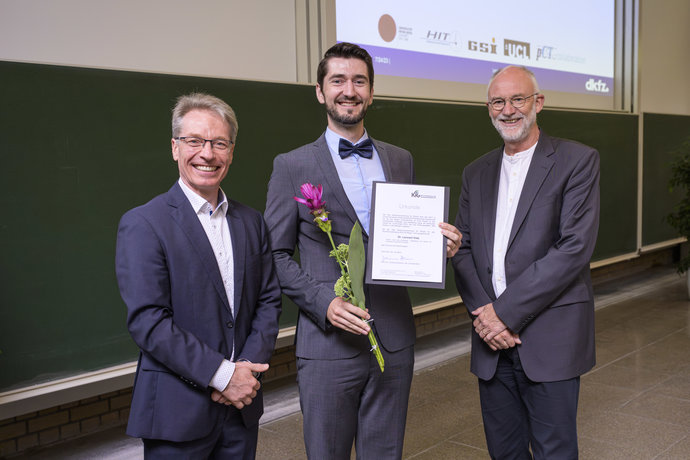
Dr. Lennart Volz from the GSI Department of Biophysics has received the Otto Haxel Award for Physics. He received the prize for his dissertation on "Particle imaging for daily in-room image guidance in particle therapy". The award ceremony took place at the KFG summer event in Karlsruhe, organized by the "KIT Freundeskreis und Fördergesellschaft e.V.".
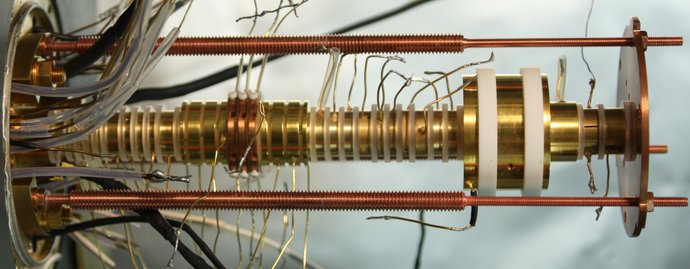
Using the LIONTRAP setup in Mainz, a team of researchers from the GSI Helmholtzzentrum für Schwerionenforschung in Darmstadt as well as the Max Planck Institute for Nuclear Physics and the University of Heidelberg have succeeded in determining the mass of helium-4 nuclei, also known as alpha particles, with a precision of eleven digits. The results of the measurements are published in the scientific journal Physical Review Letters. Precision mass measurements with Penning traps will also play a…












